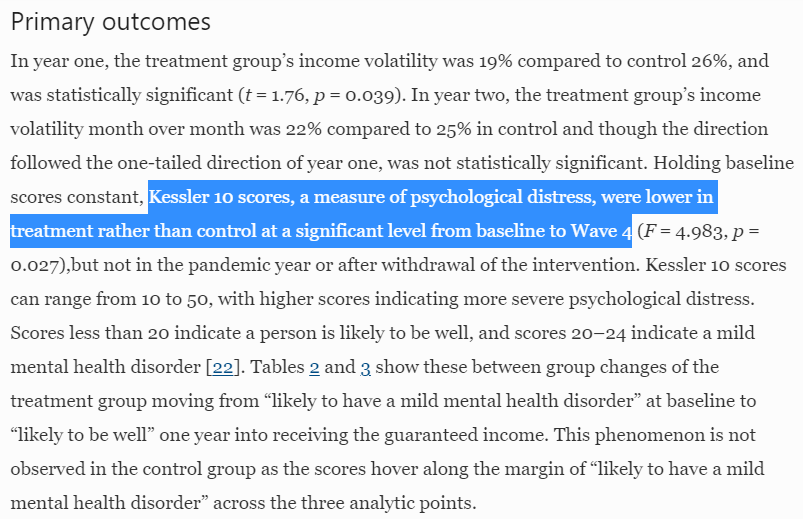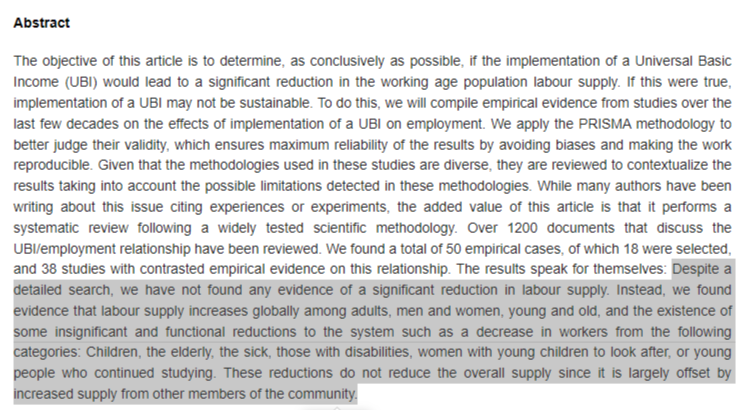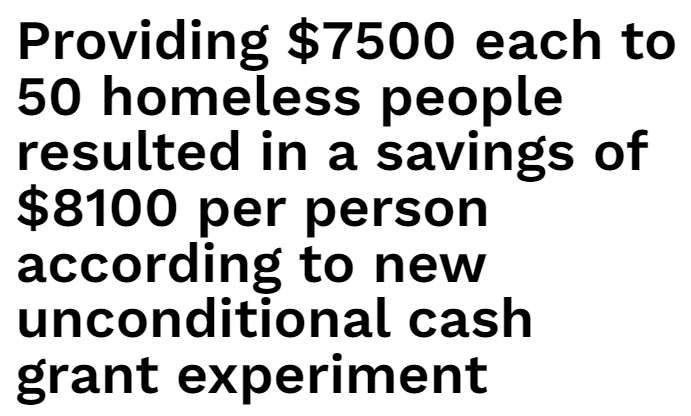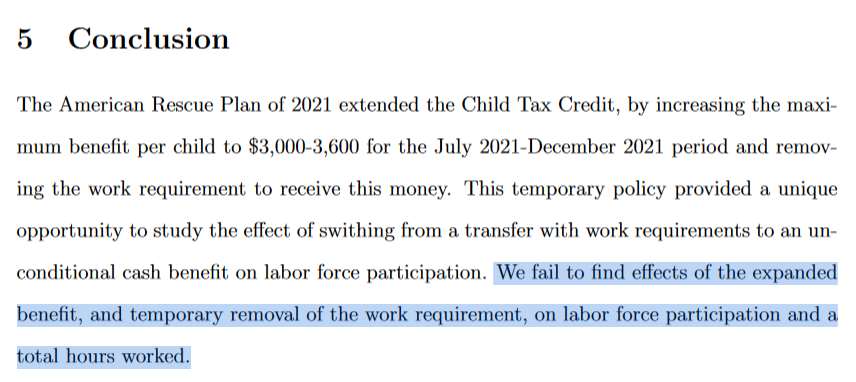A 🧵 of key takeaways from the final results of the @stocktondemo of #BasicIncome published yesterday:
✅No negative impact on work
✅Income volatility down
✅Mental health improved
✅Less fatigued
✅Improved physical functioning
✅More bargaining power
link.springer.com/article/10.100…
✅No negative impact on work
✅Income volatility down
✅Mental health improved
✅Less fatigued
✅Improved physical functioning
✅More bargaining power
link.springer.com/article/10.100…

Pre-pandemic, employment increased quite a bit in the basic income group, but the increase did not remain significant during the pandemic. It's possible that this and other non-significant results were due to unexpected attrition by the end of the experiment. (more on that later) 

Income volatility was another measure that decreased significantly pre-pandemic, but did not remain significant, as did psychological distress. People in the basic income group moved from "likely to have a mental health disorder" to "likely to be well" in year one, pre-Covid. 

Other measures of health improvements for those in the control group were: less pain, less fatigue, greater emotional wellbeing, fewer role limitations due to health, and improved physical functioning, which unlike the other measures, remained significant through the pandemic. 

This next observation is particularly fascinating. Basic income at first only impacted those receiving it, but then it began positively impacting those around them, as the basic income group began to alleviate the household financial stress of others. 

Those in the basic income group also experienced greater bargaining power. With just $500 a month guaranteed, they became less tolerant of low pay and jobs that put their health at risk in a pandemic. They avoided Covid exposure and expected more from employers. 

Key quote: “You can take so much risk [with UBI]. The only reason I got the internship was because of me taking the risk of having to quit a job before and knowing that I have that money. I could sustain myself until this new opportunity came around, and I was able to take it.” 

In conclusion, I'd say this basic income pilot is yet another success, but I'd also say that one weakness of it was attrition during a pandemic. People weren't forced to fill out the surveys, and as a result, about 2/3 of the control group and 1/2 the basic income group stopped. 

• • •
Missing some Tweet in this thread? You can try to
force a refresh

 Read on Twitter
Read on Twitter










